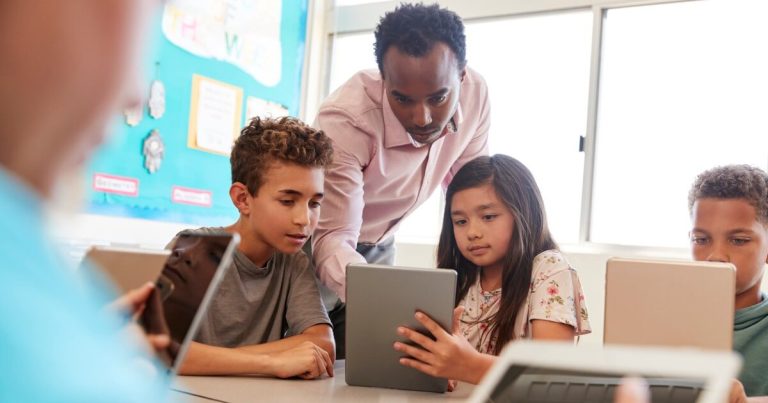Education shapes individuals, communities, and nations. It is not limited to classrooms or formal qualifications; instead, it represents a lifelong journey of growth, skill-building, and adaptation. This education guide provides a detailed roadmap to understanding different stages of learning, the value of education, strategies for effective study, and how to use knowledge for personal and professional development.
Understanding the Role of Education
Education is more than the transfer of knowledge. It is the process of nurturing critical thinking, creativity, and resilience. It equips learners with tools to face real-world challenges while also enriching cultural and emotional intelligence.
Why Education Matters
-
Economic Empowerment: Education enhances job prospects and income opportunities.
-
Social Mobility: It reduces inequality and creates fairer opportunities for individuals across backgrounds.
-
Personal Growth: Learning develops problem-solving abilities, empathy, and adaptability.
-
Global Citizenship: Educated individuals can engage with global issues like climate change, health, and technology.
Stages of Education
Education unfolds in various stages, each with distinct purposes and challenges.
Early Childhood Education
The foundation for lifelong learning is built here. Activities focus on:
-
Basic literacy and numeracy
-
Social interaction and communication skills
-
Creative play that sparks curiosity
-
Emotional development and self-regulation
Primary and Secondary Education
These stages provide structured knowledge in subjects such as mathematics, science, literature, and history. Key features include:
-
Development of analytical and reasoning skills
-
Exposure to arts, sports, and extracurricular activities
-
Preparation for higher education or vocational training
Higher Education
Universities and colleges expand horizons with specialised knowledge. Students explore:
-
Degrees in academic and professional disciplines
-
Research and innovation opportunities
-
Building networks that shape future careers
Lifelong Learning
Education extends beyond graduation. Adult learning programmes, online courses, and professional training help individuals:
-
Upskill in response to changing job markets
-
Pursue hobbies and personal interests
-
Stay relevant in rapidly evolving industries
Effective Learning Strategies
To make education meaningful, adopting proven learning techniques is essential.
Active Learning
Rather than memorising, learners should engage actively by:
-
Asking questions during lessons
-
Participating in group discussions
-
Applying knowledge to real-life scenarios
Time Management
Balancing studies with other responsibilities requires:
-
Setting realistic goals
-
Using planners or digital tools to track progress
-
Breaking tasks into manageable chunks
Critical Thinking
Modern education values reasoning over rote learning. Learners should:
-
Evaluate sources of information
-
Develop independent opinions
-
Challenge assumptions with evidence
Technology in Learning
Digital tools have transformed education. Students can now:
-
Access e-books, lectures, and online resources
-
Collaborate through virtual classrooms
-
Use educational apps for interactive learning
Barriers to Education and Overcoming Them
Education is not equally accessible to all. Barriers include:
-
Financial limitations: Scholarships, government aid, and affordable online resources provide solutions.
-
Geographical challenges: Remote learning technologies bridge distances.
-
Disabilities and special needs: Inclusive education policies and adaptive tools ensure equal opportunities.
The Future of Education
The landscape of learning is rapidly evolving:
-
Blended Learning: Combining online and offline approaches for flexibility.
-
AI and Personalised Learning: Tailoring study materials to individual strengths.
-
Global Collaboration: Students worldwide working together on shared projects.
-
Skills over Degrees: Employers increasingly value practical skills alongside formal qualifications.
Real-Life Applications of Education
Education finds expression in various aspects of daily life:
-
Understanding financial literacy to manage personal budgets
-
Applying scientific knowledge to health and wellbeing
-
Using historical awareness to make informed civic decisions
-
Leveraging technology to boost career growth
FAQs on Education Guide
What is the importance of lifelong learning?
Lifelong learning allows individuals to stay adaptable, upskill for career advancements, and pursue personal passions outside of formal qualifications.
How does technology improve education outcomes?
Technology provides access to diverse resources, enables collaboration across countries, and supports personalised learning experiences.
Is vocational training as valuable as higher education?
Yes, vocational training equips learners with practical, industry-ready skills that often lead directly to employment. Its value depends on career goals.
How can parents support their child’s education effectively?
Parents can create a supportive environment by encouraging curiosity, helping with routines, and showing interest in school activities without pressuring excessively.
What role does education play in mental health?
Education fosters resilience, critical thinking, and self-confidence, all of which contribute to stronger mental wellbeing. Schools also play a role in offering support systems.


